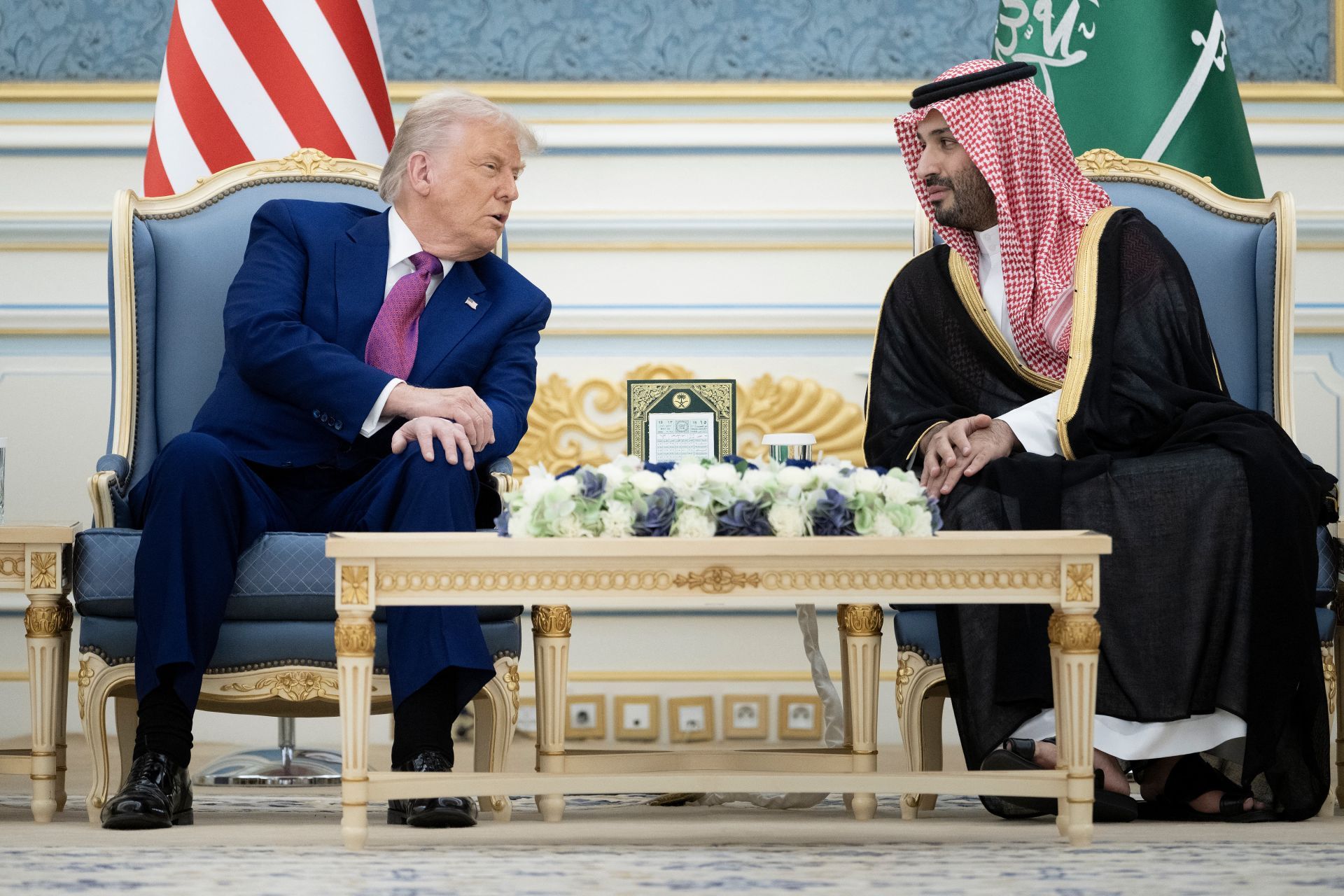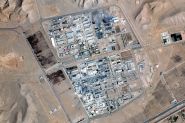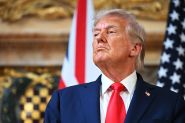- Home
- Middle East
- Sale of F-35s to Riyadh: A New Test for U.S. Alliances in the Middle East

©Brendan Smialowski / AFP
On the eve of Crown Prince Mohammed bin Salman’s visit to Washington, Donald Trump announced Monday his intention to approve the sale of F-35 fighter jets to Saudi Arabia.
“We are going to sell F-35s,” the president declared from the White House, praising ties with Riyadh and describing the kingdom as “a great ally.” The announcement marks a significant shift in how the United States handles the transfer of advanced weaponry to its Arab partners.
It also comes as Washington seeks to encourage Riyadh to normalize relations with Israel, even as the kingdom reiterates its commitment to the Arab peace initiative and the establishment of a viable Palestinian state.
Diplomatic stakes are high. According to the Financial Times, Mohammed bin Salman’s visit is expected to seal a series of agreements covering defense, civilian nuclear energy, advanced technologies, and increased Saudi investment in the United States. For Donald Trump, who is facing a difficult domestic climate, the event is also an opportunity to showcase a renewed partnership with one of the region’s most influential states.
Why Riyadh Wants the F-35
Despite already operating an impressive fleet that includes F-15SA, Eurofighter Typhoon, and Tornado IDS jets, Saudi Arabia is seeking a major technological leap. The F-35, considered the most advanced fighter aircraft in the world, combines stealth, integrated sensors, and the ability to penetrate sophisticated air defenses.
As the Foundation for Defense of Democracies (FDD) notes, the aircraft operates with far greater effectiveness in hostile environments than previous generations.
This versatility explains Riyadh’s interest, as the kingdom hopes to strengthen its capabilities against Iran and integrate more fully into a regional security architecture.
The F-35 would give Saudi Arabia a decisive qualitative edge, even though its F-15s, which are capable of carrying heavier payloads, would still play complementary roles. The combination of both platforms offers great potential, as Israel demonstrated during the twelve-day war against Iran.
Israel’s Concern: Safeguarding its Qualitative Military Edge
The core issue remains protecting Israel’s “qualitative military edge” (QME), a principle enshrined in U.S. law. Since the 1960s, Washington has pledged to preserve Israel’s technological superiority over all regional forces. According to Al Jazeera, several Israeli officials believe that delivering the F-35 to a neighboring country would undermine a carefully calibrated balance.
Views within Israel’s leadership, however, are divided. According to Axios, the political figures consulted say that Israel is not opposed to a potential sale on one condition: it must be tied to full normalization with Riyadh. Without diplomatic concessions, they argue, approving the sale would be “a mistake.”
Israel’s Air Force, however, is firmly opposed. As reported Tuesday by the Times of Israel, the military has submitted an official document warning that Israel’s technological edge would be irreversibly “eroded” if other regional states acquired the aircraft.
Israel remains the only Middle Eastern country operating the F-35, with forty-five jets in service and thirty more on order.
Washington Between Legal Obligations and Fears from the Chinese
The debate extends beyond Israel. Protecting sensitive technologies is now a major concern. Citing a New York Times investigation, the Times of Israel reports that the Pentagon fears F-35-related technology could reach China due to growing military and technological ties between Riyadh and Beijing, especially after the joint naval exercises “Blue Sword-4” in October 2025. FDD analysts say such cooperation fuels skepticism among U.S. officials.
Congress will play a decisive role. It can block the sale and must verify compliance with U.S. law, particularly Section 36(h) of the Arms Export Control Act.
This provision requires assessing whether Israel can “counter the enhanced capabilities” of the purchasing country and whether the sale alters the region’s “strategic and tactical balance.”
According to the FDD, delivering F-35s to Riyadh would inevitably reduce Israel’s advantage, even partially, thus requiring compensatory military support for the Israeli state.
From Pariah to Strategic Partner
The Washington Institute highlights the dramatic evolution of U.S.-Saudi relations. After the murder of Jamal Khashoggi, the crown prince had become persona non grata for parts of the American political establishment.
Today, cooperation is reaching unprecedented levels. Saudi Arabia is expected to obtain enhanced defense commitments, advanced technological partnerships, and increased support for its economic diversification agenda.
But one major political obstacle remains: establishing diplomatic relations between Israel and Saudi Arabia. Axios reports that Riyadh demands tangible progress toward a Palestinian state, a condition Benjamin Netanyahu rejects. Positions remain far apart, but Washington hopes the Trump–MBS meeting will revive tripartite discussions.
The sale of F-35s is therefore not merely a military issue. It sits at the crossroads of regional security, U.S.-China rivalry, the future of the U.S.-Saudi strategic partnership, and Israel’s regional status. These factors will shape Middle Eastern geopolitics for years to come.
Read more




Comments